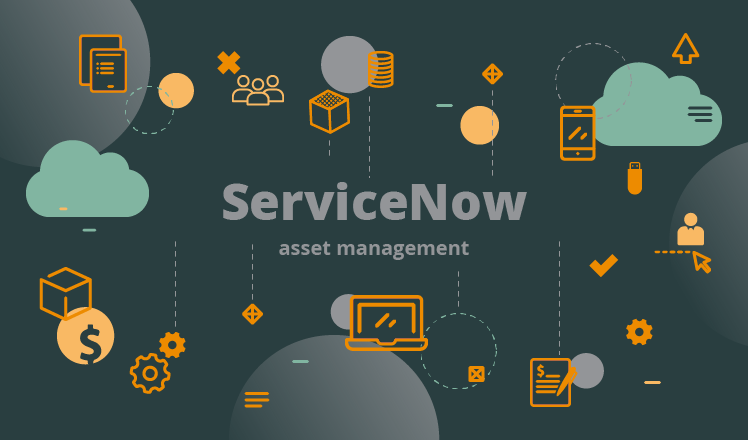
In today's fiercely competitive business landscape, success hinges on effective sales management. Companies, irrespective of their size, need tools that can empower their sales teams, streamline processes, and foster stronger customer relationships. That's where Microsoft Dynamics 365 Sales comes into play. In this article, we will delve into the depths of this CRM powerhouse, exploring its features, benefits, challenges, and the future it promises to usher in.
Understanding Microsoft Dynamics 365 Sales
The Evolution of Dynamics 365 Sales
Microsoft Dynamics 365 Sales, commonly known as Dynamics CRM, has come a long way since its inception. It originated as a standalone CRM system and later became a part of the comprehensive Dynamics 365 suite, which integrates various Microsoft applications into one unified platform.
What Sets Dynamics 365 Sales Apart
Dynamics 365 Sales stands out in a crowded CRM market due to several key differentiators:
- Seamless Integration: It seamlessly integrates with other Microsoft applications, such as Microsoft 365 and LinkedIn Sales Navigator, providing a comprehensive ecosystem for sales teams.
- Adaptive AI: The system employs artificial intelligence and machine learning to provide insights and recommendations, making it easier for sales professionals to make informed decisions.
- Scalability: Whether you're a small business or an enterprise-level corporation, Dynamics 365 Sales can scale to meet your needs, adapting as your business grows.
Benefits of Microsoft Dynamics 365 Sales
Improved Sales Efficiency
In today's fast-paced business world, efficiency is the name of the game. Dynamics 365 Sales automates repetitive tasks, freeing up sales teams to focus on what they do best: selling. From managing leads and opportunities to forecasting sales, the platform streamlines operations, reducing the risk of human error.
Enhanced Customer Engagement
Engaging customers effectively is crucial for building lasting relationships. Dynamics 365 Sales provides a 360-degree view of each customer, enabling personalized interactions. The ability to communicate across multiple channels, including email, phone, and social media, ensures that you can meet your customers where they are.
Data-Driven Decision Making
Data is the lifeblood of modern business, and Dynamics 365 Sales offers a robust set of analytics and reporting tools. Real-time dashboards and integration with Power BI allow businesses to make data-driven decisions quickly. Moreover, predictive analytics help sales teams identify trends and opportunities proactively.
Key Features and Functionality
Customer Relationship Management (CRM)
At its core, Dynamics 365 Sales is a CRM system, meaning it helps businesses manage their relationships with customers. It provides tools for efficient contact and account management, enabling sales teams to keep detailed records of interactions and transactions.
Sales Automation
The platform excels in automating the sales process. From the initial lead capture to closing deals and generating quotes and orders, Dynamics 365 Sales streamlines each step. This automation not only saves time but also minimizes errors.
Integration Capabilities
Integration is a cornerstone of Dynamics 365 Sales. It seamlessly connects with Microsoft 365, allowing sales teams to access emails, calendars, and documents within the CRM. Additionally, integration with LinkedIn Sales Navigator provides valuable insights about prospects and customers.
Mobile Accessibility
In a world where business happens on the go, mobile accessibility is vital. Dynamics 365 Sales offers a dedicated mobile app that empowers sales professionals to work effectively from anywhere. This mobile access facilitates timely responses to customer inquiries and the ability to update records while in the field.
Implementation and Adoption
Deployment Options
Businesses can choose between cloud-based and on-premises deployments of Dynamics 365 Sales. The cloud option offers flexibility, scalability, and automatic updates, making it the preferred choice for many organizations. On-premises deployments provide greater control but require more extensive IT resources.
Customization and Configuration
One of the strengths of Dynamics 365 Sales is its adaptability. The system can be tailored to suit the specific needs of your business, from custom fields and entities to automated workflows. However, it's essential to strike a balance between customization and out-of-the-box functionality to avoid complexity.
User Adoption Strategies
Implementing a CRM system is not just about technology; it's also about people. To ensure successful adoption, companies must invest in comprehensive training programs, user support, and change management. When sales teams see the tangible benefits of the system, they are more likely to embrace it.
Case Studies and Success Stories
Real-world examples are a testament to the effectiveness of Dynamics 365 Sales. Case studies showcasing how businesses have leveraged the platform to boost sales, improve customer satisfaction, and streamline operations can serve as valuable inspirations.
Pricing and Licensing
Pricing Models
Microsoft offers various pricing models for Dynamics 365 Sales, ranging from user-based licenses to app-based licensing. The choice depends on the needs and budget of your organization. It's essential to carefully evaluate the pricing structure to ensure it aligns with your business objectives.
Licensing Options
Dynamics 365 Sales provides several licensing options, including Sales Professional and Sales Enterprise. These licenses offer different levels of functionality and customization capabilities. Companies must choose the licensing tier that best suits their requirements.
Factors Influencing Costs
While Dynamics 365 Sales can offer significant benefits, it's important to be mindful of the factors that can influence costs. These include the number of users, the extent of customization required, and any third-party integrations. Businesses should conduct a thorough cost analysis to avoid unexpected expenses.
Cost-Effective Strategies for Businesses
To make the most of Dynamics 365 Sales while managing costs, businesses should explore strategies like phased implementation, prioritizing essential features, and leveraging Microsoft's subscription bundles.
Common Challenges and Solutions
Data Quality and Integrity
Maintaining accurate and up-to-date data is crucial for CRM success. Data cleansing and validation processes, along with user training on data entry best practices, can help address this challenge.
User Resistance and Training
Resistance to change is common when implementing new technology. Effective training programs, ongoing support, and showcasing the benefits of the system can mitigate user resistance.
Scaling Challenges for Growing Businesses
As businesses expand, their CRM needs may evolve. It's important to plan for scalability from the outset, choosing a solution that can grow with the organization.
Security and Compliance Considerations
Data security and compliance with regulations such as GDPR are paramount. Companies must implement robust security measures and adhere to data protection laws when using Dynamics 365 Sales.
Future Trends and Developments
AI and Machine Learning Integration
The future of CRM lies in AI and machine learning. Dynamics 365 Sales is already leveraging AI for predictive analytics, and we can expect even more advanced features in the coming years.
Enhanced Predictive Analytics
Predictive analytics will become more precise and insightful, helping businesses anticipate customer needs and market trends with greater accuracy.
Integration with Emerging Technologies
As technologies like the Internet of Things (IoT) gain prominence, we can expect Dynamics 365 Sales to integrate with these emerging technologies, offering new ways to gather and utilize data.
Dynamics 365 Sales in a Post-Pandemic World
The COVID-19 pandemic has accelerated digital transformation efforts. CRM solutions like Dynamics 365 Sales have played a pivotal role in enabling remote work and maintaining customer relationships during challenging times.
Conclusion
In a world where customers are more informed and demanding than ever before, Microsoft Dynamics 365 Sales is a powerful tool that can help businesses excel in sales and customer engagement. Its seamless integration, automation capabilities, and data-driven insights empower sales teams to achieve excellence.
As businesses navigate an increasingly competitive landscape, adopting Dynamics 365 Sales isn't just a choice; it's a strategic imperative. It's the key to unlocking sales excellence, building lasting customer relationships, and propelling your organization toward a brighter, more prosperous future.


























